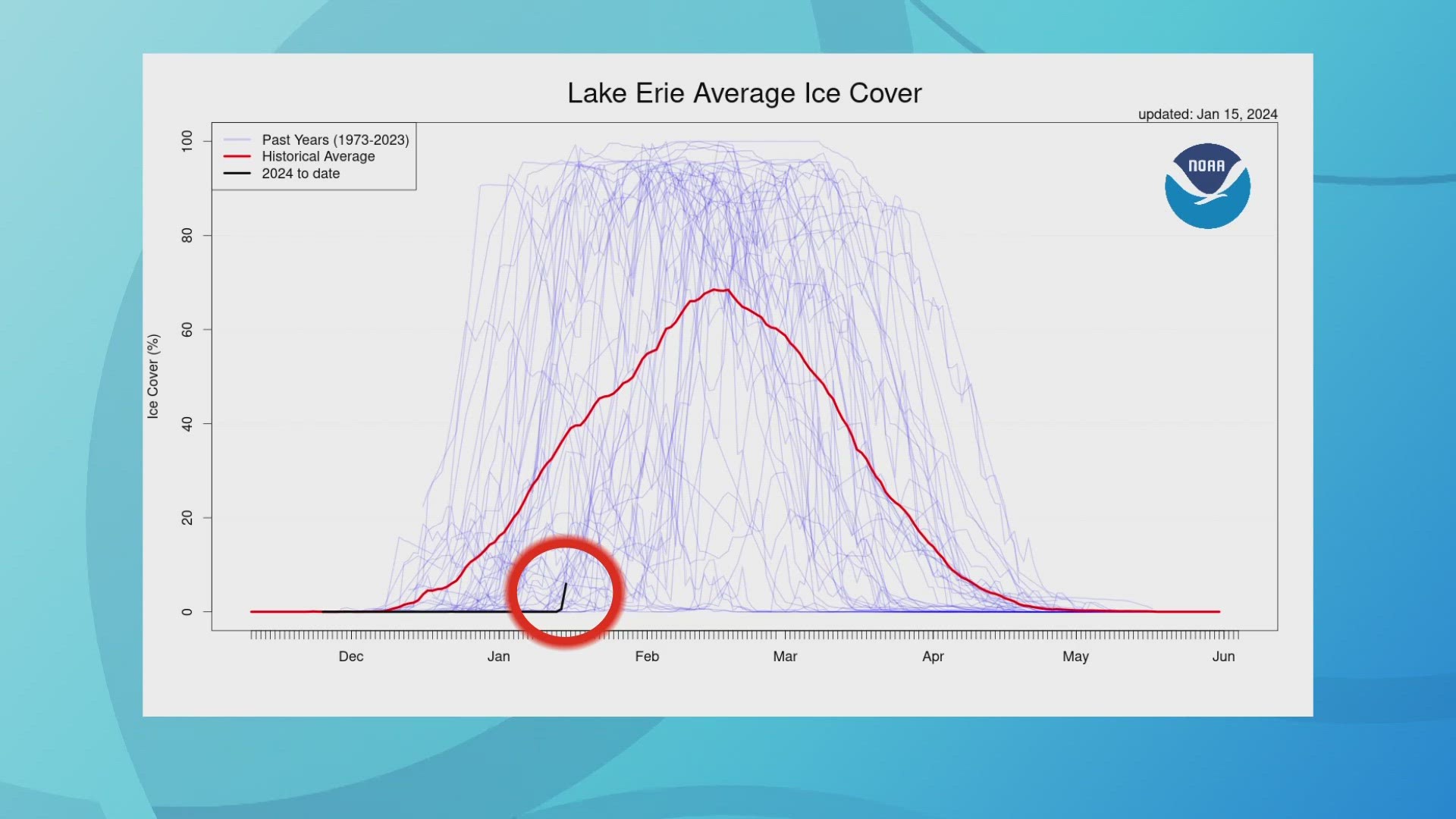ANN ARBOR, Mich. — As Northeast Ohio continues to see temperatures below freezing, Lake Erie has started to see an increase in ice.
Although waves rock into its southern shoreline, nearly 13% of the body of water has ice on it.
"The latest cold snap has definitely increased the amount of ice we're seeing," Jennifer Day, communications director for National Oceanic and Atmospheric Administration Great Lakes Environmental Research Laboratory, said.
The increase in ice is good news. However, the Great Lakes are behind schedule.
"They're lower than we would on average see," said Day.
Communities along Lake Erie's southern shoreline, like Mentor, are desperate for the lake to freeze in an effort to stall erosion.
3News reported in December that the city is working to solve the problem. Officials say the shoreline of the Mentor Lagoons Nature Preserve has become unsafe for visitors because of erosion.
"We're seeing approximately eight to 10 feet of loss of acreage every year out there," Mentor City Manager Kenneth Filipiak told us in December.
Meanwhile, Day says one of the benefits of Lake Erie freezing is to curb the erosion.
"We like to see ice, especially on the coastal areas," she said. "We get big winter storms and it helps prevent that erosion."
According to Day, fish spawn as well as less lake-effect snow are also big benefits to ice coverage. But even as this cold snap increases the ice on the lake, we may see more waves hitting the shoreline in the future.
"Over the last 50 years, the trend in the amount of ice that's been on the Great Lakes has gone down about 5% per decade," she explained. "So, over the next 10 years, we can expect on average our ice to start decreasing."

